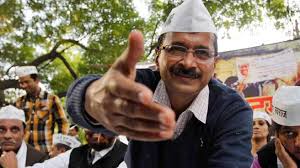New Delhi, Mar 29 : Notwithstanding the 21-day coronavirus lockdown, the Reserve Bank of India (RBI) has decided to go ahead with the merger plan of ten state-run banks into four larger bank from April 1. The apex bank has issued four separate releases announcing that the branches of merging banks will operate as of the banks in which these have been amalgamated from next month.
RBI's statement comes after Finance Minister Nirmala Sitharaman's clarification on Thursday that the mega bank consolidation plan was very much on track and would take effect from April 1.
The government on March 4 had notified the amalgamation schemes for 10 state owned banks into four as part of its consolidation plan to create bigger size stronger banks in the public sector.
Bank officers' unions, however, earlier this week wrote to the prime minister seeking to defer the merger schemes of lenders due to the lockdown triggered by coronavirus outbreak.
As per the scheme, Oriental Bank of Commerce and United Bank of India will be merged into Punjab National Bank; Syndicate Bank into Canara Bank; Allahabad Bank into Indian Bank; and Andhra and Corporation banks into Union Bank of India.
Under this, the branches of Oriental Bank of Commerce and United Bank of India will operate as branches of Punjab National Bank from April 1, 2020, and branches of Syndicate Bank as that of Canara Bank, the RBI said in a separate releases.
Allahabad Bank branches will operate as those of Indian Bank while the branches of Andhra Bank and Corporation Bank will function as the branches of Union Bank of India from the beginning of next fiscal year 2020-21, the RBI said.
"The Amalgamation of Oriental Bank of Commerce and United Bank of India into Punjab National Bank Scheme, 2020 dated March 4, 2020, issued by the Government of India... The scheme comes into force on the 1st day of April 2020," RBI said.
Customers, including depositors of merging banks will be treated as customers of the banks in which these banks have been merged with effect from April 1, 2020, the RBI noted.
Banking services across the country are impacted due to the effect of COVID-19 as a near shut down is being observed across the country.
In a letter written to the Prime Minister on March 25, the All India Bank Officers'' Confederation (AIBOC) said, "The finance minister yesterday announced a slew of measures in view of the deleterious effect of the contagion. We are also expecting an extension of closing related activities and the revision of the closing date itself from March 31 to June 30, which is the need of the hour."






Comments
Add new comment